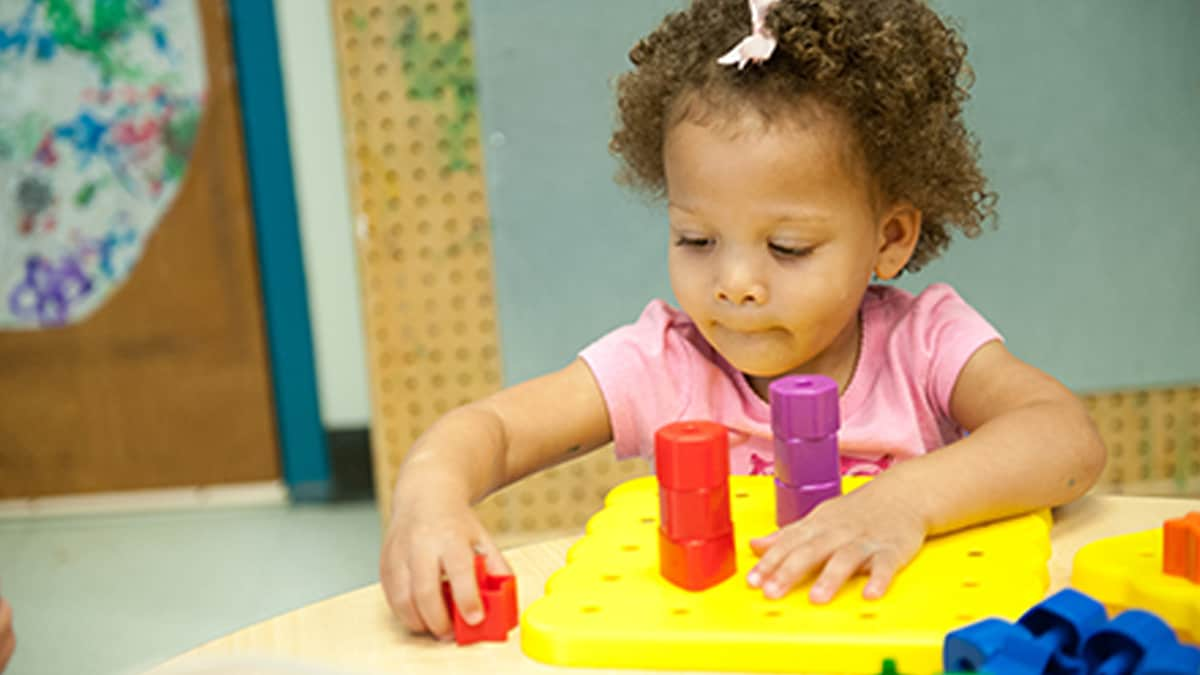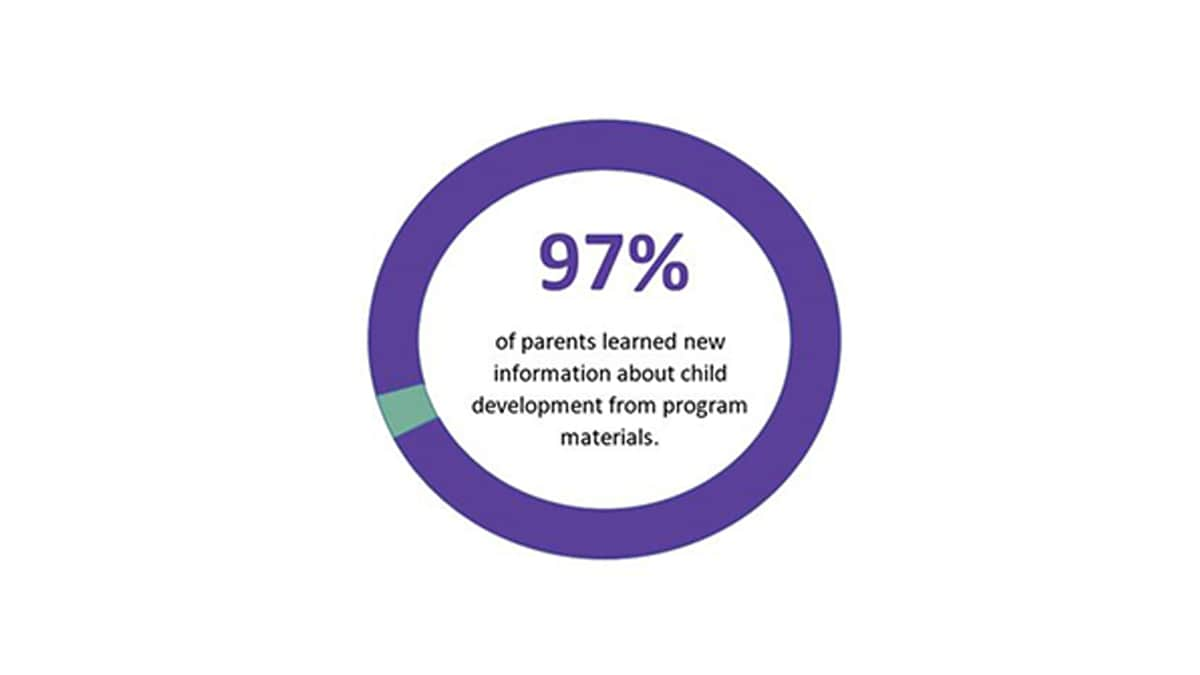At a glance
The Missouri Developmental Milestones Checklist Program for WIC was developed to address the needs of WIC staff and families around developmental monitoring. The program increased development monitoring and improved WIC staff's experience.

How the Missouri Model was developed
In 2010, the University of Missouri was one of four grantees funded by the Centers for Disease Control and Prevention (CDC) to explore how best to expand the reach of Learn the Signs. Act Early. messages and materials to engage families in monitoring their children's early developmental milestones. The Missouri Developmental Milestone Program was developed to address the needs of both WIC families22 and WIC staff around developmental monitoring.
The Missouri Program was developed in two phases before being expanded statewide: Phase I implementation included 11 WIC clinics in the city of St. Louis; Phase II further tested the model developed during the first phase by replicating in nine additional WIC clinics across four diverse, eastern counties of Missouri.
The program was developed and refined to:
- Build the Program around CDC's Learn the Signs. Act Early. (LTSAE) public health campaign to promote developmental monitoring.
- Have WIC staff promote developmental monitoring by supporting families in completing developmental milestone checklists.
- Overcome previous barriers in addressing developmental concerns by WIC staff.
- Ensure that the program works in real-life WIC settings.
The campaign's primary messages to parents are: (1) learn the signs of healthy child development (2) act early if there is a concern (3) talk to your child's doctor. Those messages are built into a series of age-specific checklists, ranging from age 2 months through 5 years. The messaging was reinforced by colorful, family-friendly graphics on the walls and floors of WIC clinics. The graphics introduce key concepts of early child development in a fun, engaging way.
Differences made

More children's development was monitored by their parents
- In 18 months, >14,000 parents in St. Louis and nine clinics across eastern Missouri completed milestone checklists.
Parents learned new information about child development
- Of 119 parents participating in a survey about the program, 97% reported learning new information about child development from the program materials.
Children with missed milestones were referred to their doctor for developmental screening, were further evaluated if needed, and received services, if needed.
- The program evaluated referral outcomes of 122 children aged 12–48 months who were referred to their primary care doctors for possible developmental concerns during the first 6 months of program implementation. Of the 122 children, 84 returned to WIC clinics during the following 6 months, and parents reported what happened after the referral.
61% of the 84 children were seen by their doctor because of the WIC referral.
- Of the children seen by their doctors, 41% were referred on for additional testing by other professionals and 29% accessed intervention services.
WIC providers' takeaways
WIC staff found the program useful and easy to implement.
Useful
- 90% said the program helped them learn when to refer and how to support families
- 95% said they referred one or more children
- 95% said the program promotes healthy development
Easy to implement
- 95% said families were willing to complete the checklists
- 80% said the program takes 5 minutes or less
Additionally, in focus groups, WIC staff indicated that the program engages families, empowers staff members, and leads to completed doctor referrals.
